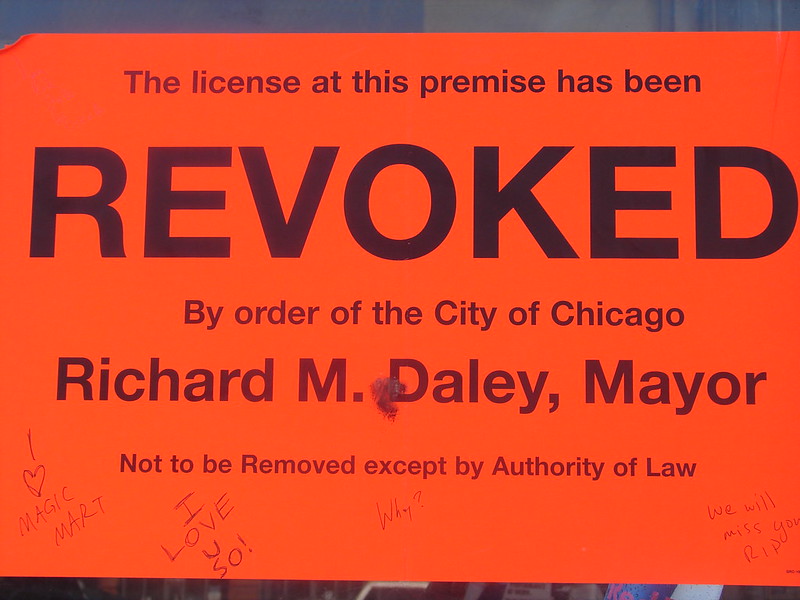Rejection is the act of dismissing or declining something or someone, typically at the time of the initial request or proposal. Revocation, on the other hand, is the act of canceling or invalidating something that has previously been granted or authorized.
What is rejection?

Rejection is the act of dismissing, declining, or refusing something or someone. It can refer to a wide range of situations in which a person or entity is not accepted or approved, or their request, proposal, or application is turned down.
For example, a job applicant may receive a rejection letter informing them that they were not selected for the position they applied for. A person may feel rejected by a friend or romantic partner if they are ignored, excluded, or treated with indifference. A proposal for a business deal or a project may be rejected if it does not meet the necessary criteria or is deemed unfeasible or unprofitable.
Rejection can have a significant emotional impact on individuals, as it can lead to feelings of disappointment, frustration, sadness, and sometimes anger or resentment. However, rejection can also be a natural and necessary part of life, as it allows individuals and organizations to make choices based on their needs, goals, and priorities.
Rejection is the act of refusing or declining something or someone, and can occur in a wide range of personal, social, and professional contexts.
What is revocation?
(Photo By Quinn Dombrowski on flickr)

Revocation is the act of invalidating or canceling something that has previously been granted or authorized. In legal terms, revocation typically refers to the cancellation of a legal document, license, or contract that has been previously issued or executed.
For example, a person may seek to revoke a power of attorney that they have granted to someone else, in order to cancel the authority that the other person has to act on their behalf. A government agency may revoke a license or permit that has been granted to an individual or business if the person or business has violated the terms of the license or permit.
Revocation can also refer to the act of withdrawing a previously given consent or permission. For instance, if a person has given consent for their medical records to be shared with a third party, they may seek to revoke that consent in order to prevent further sharing of their medical information.
Revocation is the act of nullifying or canceling a previously granted right, privilege, or permission, and can have significant legal consequences.
Rejection Vs. Revocation – Key differences
Rejection and revocation are two different concepts with distinct meanings. The key differences between rejection and revocation are as follows:
Meaning: Rejection refers to the act of dismissing or declining something or someone, whereas revocation refers to the act of invalidating or canceling something that has previously been granted or authorized.
Timing: Rejection occurs at the time of the initial request or proposal, whereas revocation occurs after a grant or authorization has been given.
Consequences: Rejection leads to the denial of the request or proposal, whereas revocation cancels the authorization or privilege that has been granted. Rejection typically does not affect anything that has already been approved, whereas revocation can have significant legal or practical consequences.
Scope: Rejection is typically limited to a specific request or proposal, whereas revocation can apply to a wide range of legal documents, licenses, or contracts.
The main difference between rejection and revocation is that rejection is the denial of a request or proposal, while revocation is the cancellation of a previously granted authorization or privilege.
Why is it important to know the difference between rejection and revocation?
It is important to know the difference between rejection and revocation because they are two distinct concepts with different implications and consequences.
Firstly, rejection refers to the act of dismissing or declining something or someone. This can happen in a wide range of contexts, such as job applications, business proposals, and personal relationships. Rejection typically occurs at the time of the initial request or proposal and leads to the denial of the request or proposal.
Understanding rejection is important because it can help individuals and organizations to prepare for and respond to potential setbacks. For example, if a job applicant is rejected, they may need to reassess their qualifications, skills, or experience, and consider applying for other positions. Similarly, if a business proposal is rejected, the proposer may need to revise their plan, address any concerns raised by the decision-maker, and try again.
Secondly, revocation refers to the act of canceling or invalidating something that has previously been granted or authorized. This can include licenses, contracts, permits, or privileges. Revocation typically occurs after a grant or authorization has been given and can have significant legal or practical consequences.
Understanding revocation is important because it can help individuals and organizations to avoid or address potential risks and liabilities. For example, if a license or permit is revoked, the holder may lose the right to conduct certain activities or face penalties or fines. Similarly, if a contract or agreement is revoked, the parties involved may need to renegotiate or seek legal remedies.
Understanding the difference between rejection and revocation can help individuals and organizations to make informed decisions, manage expectations, mitigate risks, and pursue their goals effectively.
What are the types of revocation?
There are two types of revocation: Express and Implied.
Express revocation occurs when the offeror explicitly states that they are no longer willing to enter into the contract.
Implied revocation occurs when the offeror takes an action that is inconsistent with their willingness to enter into the contract. For example, if the offeror sells the property that is the subject of the contract, this would be an implied revocation of their offer.
What is revocation of acceptance?
Revocation of acceptance is when the buyer takes back the goods they have accepted from the seller. This can happen if the goods are not as described, if they are damaged, or if the buyer simply changes their mind. Revocation of acceptance must be done within a reasonable time after the buyer discovers the problem with the goods.
Can an offer be terminated by rejection?
Yes, an offer can be terminated by rejection. When an offer is made, the person receiving the offer has the option to accept, reject, or counteroffer. If the offer is rejected, the offeror is no longer bound by the terms of the original offer and is free to make a new offer or terminate the negotiations altogether.
Once an offer is rejected, it cannot be accepted at a later time, unless a new offer is made. The rejection of an offer can be communicated explicitly, such as by stating “I reject your offer,” or implicitly, such as by making a counteroffer that changes the terms of the original offer. In either case, the rejection terminates the offer and ends the possibility of acceptance under the original terms.
It is important to note that the rejection of an offer does not automatically terminate any accompanying contractual obligations or duties that may have arisen as a result of the negotiations. For example, if an offeror has promised to hold an offer open for a certain period of time, that obligation may still be enforceable even if the offer is later rejected.
Featured Image By – Asim Saeed on Flickr








